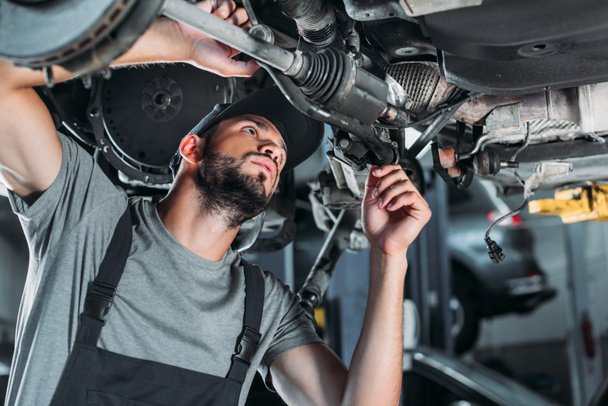Keeping your car in peak condition isn’t just about avoiding breakdowns—it’s about extending its lifespan and ensuring you get the most out of your investment. Whether you’re a new driver or have been behind the wheel for years, understanding how to properly maintain your car is crucial. In this guide, we’ll take you through essential steps that every car owner should know to keep their vehicle running smoothly for years to come.
The Importance of Regular Car Maintenance for Longevity
Cars are like any other machine; they require regular maintenance to function properly. Routine checks and services not only prevent costly repairs but also improve fuel efficiency and ensure safety on the road. When you stay on top of maintenance, you reduce the risk of unexpected breakdowns, which can be both dangerous and inconvenient.
There’s also the benefit of maintaining your car’s resale value. A well-cared-for vehicle is more attractive to potential buyers, and you’ll likely get a better price if you decide to sell it. Additionally, regular maintenance can help you better understand your vehicle’s performance, allowing you to catch issues early before they develop into bigger problems. The more you know about your car’s needs, the better equipped you’ll be to make informed decisions.
Finally, keeping up with maintenance contributes to cleaner emissions, benefiting not just your car but the environment as well. Cars that are regularly serviced tend to run more efficiently and emit fewer pollutants, making them kinder to our planet. Overall, regular car maintenance is an investment in your vehicle’s longevity, your safety, and the world around you.
Understanding Your Car’s Maintenance Schedule
Every car comes with a maintenance schedule provided by the manufacturer, often found in the owner’s manual. This schedule outlines when specific services are due, such as oil changes, tire rotations, and brake inspections. Adhering to this schedule ensures that your car receives the care it needs at the right intervals.
Understanding the schedule isn’t just about following it blindly. It’s about knowing why certain services are required and how they contribute to your car’s performance. For example, regular oil changes keep the engine lubricated and prevent it from overheating. Learning about these aspects empowers you to maintain your car more effectively.
If your car’s manual is unavailable, don’t worry. Many manufacturers provide digital copies online, and there are various apps and tools available to help you track maintenance tasks. By familiarizing yourself with your car’s schedule, you’ll be better prepared to keep it running smoothly and efficiently for years to come.
Essential Maintenance Checks You Can Do at Home
You don’t need to be a mechanic to perform basic maintenance tasks. Many essential checks can be done right at home with minimal tools and effort. One of the simplest things you can do is regularly check your tire pressure. Properly inflated tires improve fuel efficiency and handling, while underinflated tires can lead to premature wear and even blowouts.
Another easy check is your car’s fluid levels. This includes oil, coolant, brake fluid, and windshield washer fluid. Ensuring these are at the proper levels is crucial for your car’s operation and safety. Also, don’t forget to periodically inspect your car’s battery. Look for corrosion on the terminals and ensure it’s securely fastened. A clean and secure battery is less likely to cause starting problems.
By performing these basic checks, you can catch small issues before they turn into bigger, more expensive problems. Plus, these tasks help you become more familiar with your vehicle, giving you greater confidence in your ability to care for it.
The Role of Professional Servicing in Car Longevity
Although there are numerous maintenance tasks you can handle on your own, professional servicing—such as those offered in Kapolei—is crucial for more complex procedures which include car AC repairs, suspension replacements, and electrical component fixes. Certified mechanics have the expertise and equipment needed to thoroughly inspect your car and address any issues you might not be able to see. Regular visits to a service center help ensure that your car stays in top condition over its lifetime.
Professional servicing typically includes a comprehensive inspection of your vehicle’s critical systems, such as the engine, brakes, suspension, electrical components, and AC system. These checks are vital for identifying wear and tear that you may not notice. Mechanics can also perform advanced diagnostics to detect potential problems before they become major repairs.
Additionally, professional servicing often includes software updates and recalls that you might not be aware of. By trusting your car with professionals, especially for tasks like AC repair, you ensure it receives the most up-to-date care and attention, ultimately prolonging its life and enhancing its performance.
How to Choose the Right Auto Service Center
Selecting the right auto service center can make a big difference in your car’s maintenance. Start by researching and choosing a reputable service center with certified mechanics and a track record of quality work. Online reviews and recommendations from friends and family can be great resources in making this decision.
When evaluating service centers, consider the range of services they offer and whether they specialize in your car’s make and model. It’s also important to ask about their warranty policies on parts and labor. A good service center will stand behind their work and provide peace of mind.
Lastly, don’t underestimate the value of customer service. Choose a service center that communicates clearly and treats you with respect. A trustworthy center will explain the work they do and keep you informed about your car’s condition. Building a relationship with a reliable service center will give you the confidence that your vehicle is in good hands.
Advanced Maintenance Tips for Specific Parts
Certain parts of your car require specialized care to ensure optimal performance. For example, your car’s transmission is a complex system that may need fluid changes or adjustments to maintain smooth shifting. Similarly, the timing belt is a critical component that should be replaced according to your car’s maintenance schedule to prevent engine damage.
Pay attention to your car’s brake system as well. Squealing or grinding noises can indicate worn brake pads, which should be replaced promptly to ensure safety. Additionally, rotating and balancing your tires at regular intervals promotes even wear and extends their lifespan.
For those willing to go the extra mile, consider using high-quality or synthetic oils. While they may cost more upfront, they often provide better protection and performance for your engine. By focusing on these advanced maintenance tips, you can further extend your car’s longevity and reliability.
Conclusion
In conclusion, regular maintenance is crucial for keeping your vehicle reliable and long-lasting. By familiarizing yourself with your car’s maintenance schedule, performing essential checks at home, and seeking professional servicing when needed, you can keep your vehicle running smoothly for years. Choosing the right service center and prioritizing specific components further protects your investment.
Remember, consistent maintenance not only helps you avoid costly repairs but also enhances your vehicle’s safety, performance, and resale value. It’s an investment in your peace of mind and driving enjoyment. By taking these proactive steps, you’ll ensure your vehicle remains a dependable companion for all your future journeys.













